In an earlier post on making the case for moving to Johor, I mentioned two categories of expenditures – upfront capital, and monthly outlay. I showed that in our situation, we were able to drop our monthly outlay while maintaining a similar or even higher standard of living in Johor as compared to Singapore. Numbeo comes to the same conclusion as well by showing differences of up to 80% on various goods and services. However, after spending some time actually living in the Tuas side of Johor, we think our savings will be a bit more measured than that.
This post will touch on the upfront capital required for even contemplating such a move. I will share some figures based on our needs and desired preferences, and as always, it will vary from individual to individual. First, we start with a summary breakdown of the upfront capital of about RM100k (or S$30k) in this table:
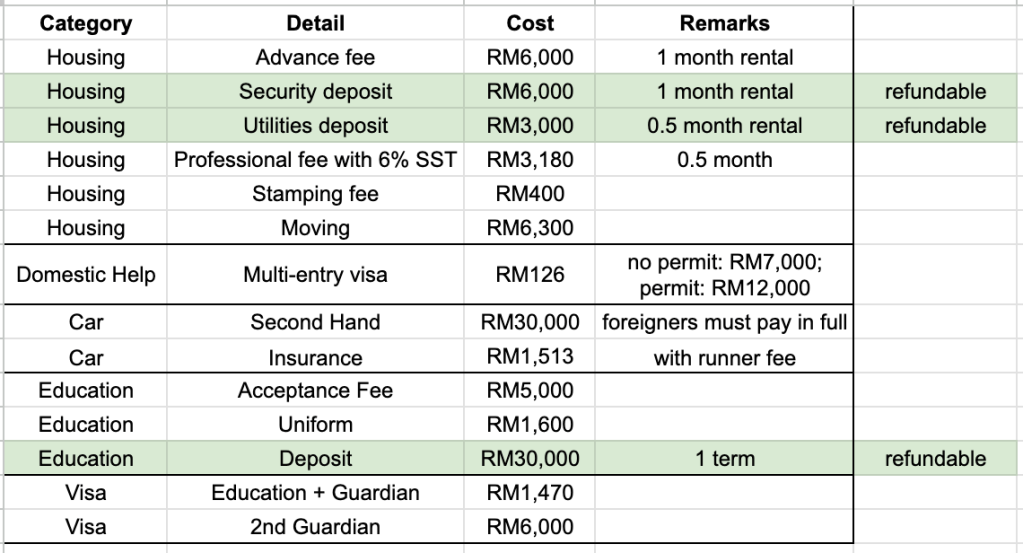
Housing
Whether to buy or rent should be at the centre of any relocation decision. This dilemma deserves a full exposition on a separate occasion but suffice to say that for us, we decided to go with rental first, mainly to understand what it is like living in a landed place as well as to learn more about different developments in the area first before making our buying decision. This is also very much in line with our buy-to-rent, rent-to-stay model post-MOP.
Moreover, it was only we moved in that we could better appreciate the importance of workmanship quality of real estate, which is almost a given in Singapore but can vary greatly depending on the developer on this side of the causeway. As a case in point, within a month of staying here, there were a number of days with heavy rain and we found ourselves having to deal with a case of a leaking roof and mouldy ceilings.


So I would really caution anybody going in to buy a Malaysian property blindly, especially if one has no experience with living in a landed property and having to deal with insects from your garden and even other miscellaneous fees like gardening, pest control, pool cleaning (if you have a pool), etc. The list can really go on when it comes to such maintenance.
Of all the costs in the list, the one that stands out the most is paying substantially more for cross-border moving, and with it comes a bit more hassle in paperwork and custom fees. We engaged Entourage, which is a professional mover and they sorted it all out for us without us having to worry a single bit. Unlike a move within Singapore, ours was done over two days.
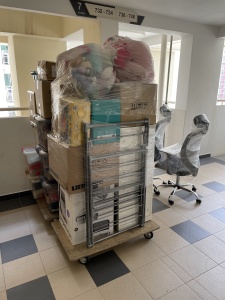
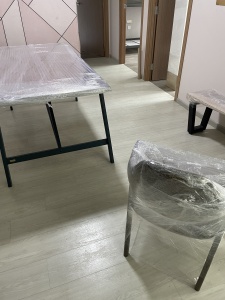
On the first day, they packed everything from our Singapore address into their truck and then it gets parked overnight at their warehouse. On the second day, everything is then unpacked at our Malaysia address. For what it’s worth, I think it was worth the money considering all the other moving parts that we had to deal with at the same time.
Education
This gets more expensive for larger families and non-existent for DINK (double-income, no kids) couples. There is also a range of educational options, right from local schools (although I must confess I’m not familiar with the eligibility of foreigners for such schools) to international schools. Even international schools are on a spectrum in terms of size, provisions and cost. Needless to say, Marlborough College Malaysia being a private school from the UK, is definitely on the more expensive side but after surveying a couple of international schools in the area, it is really a case of “you get what you pay for”.
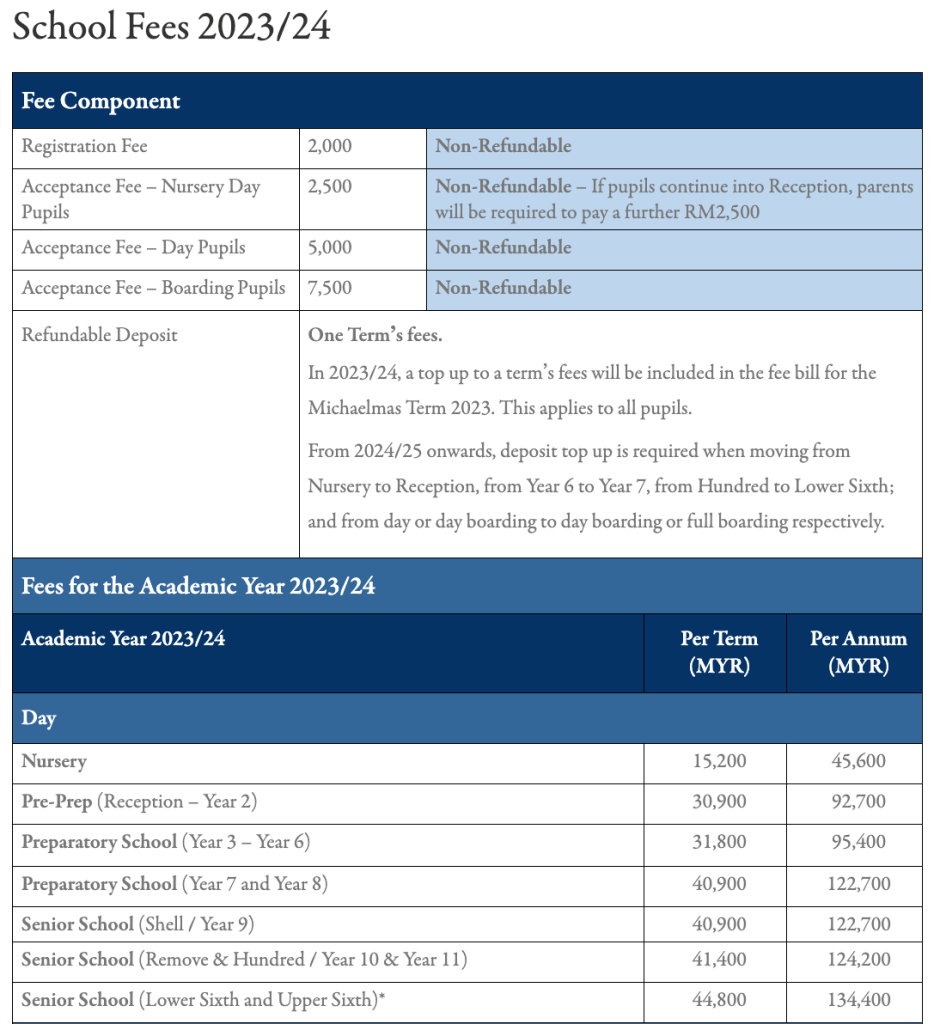
In truth, the difference is not too big in the preschool years and it can be justified by programs such as ballet, swimming and forest school that are built into their timetable. However, compared to a public school in Singapore which is surely more academically rigorous and intensive, the costs can become staggering.
Visa for Long-Term Stay Arrangements
We decided to go with the education visa + guardian visa arrangement. That’s what the locals call it. But on the government website, it’s a student pass which can be accompanied with a dependant pass. In the long-run, we are potentially looking at the employment pass (EP) for it will afford more benefits, but that remains to be seen. So for now, our daughter’s education will serve as a means for us to legitimately stay in Malaysia for long periods of time.
Domestic Help
We applied for a multi-entry visa for our Myanmar helper to come and join us. With a validity of six months, it is nothing but a stop-gap solution for the time being. That being the case, we explored with local agents on the means for a foreigner to employ a non-Malaysian domestic helper but the rules make it particularly prohibitive. My best guess is that such jobs are in direct competition with the locals in the job market but it also doesn’t help that the locals are not keen on the idea of being a live-in helper either. Our chats with a couple of agents were not useful in getting a domestic helper legally, which involves a lot of money and yet no guarantee of getting their work permit. In most cases, they often recommended bringing in an Indonesian helper and just letting her overstay, which we were quite uncomfortable with because it seemed like borderline human trafficking.
Private Car
While it can be considered optional in Singapore, this is seldom the case in Malaysia considering the generally longer travel distances and poorer public transportation network and infrastructure. On the flip side, car ownership is much, much cheaper in Malaysia, without any need for a certificate of entitlement (COE), so in theory, you can own a Malaysian car forever instead of just renting one for 10/15/20 years.
That said, there are some inherent obstacles for a foreigner to own a Malaysian car. For instance, foreigners seldom qualify for a car loan and we typically have to pay for the car in full. Most people find their second-hand car on carlist.my. But looking for one can be tricky for foreigners with a high risk of getting cheated, because tweaking the odometers or replacing new parts with old ones even by workshop mechanics are commonplace. We were fortunate to get ours from a neighbour in the same estate, so the seller’s reputation was at stake if the car was not what it was made out to be.
Additionally, the process to transfer ownership of a Malaysian car to a foreigner can also be somewhat complex, and our insurance company engaged a runner to bring us through the process when we went down to Jabatan Pengangutan Jalan Malaysia (JPJ), which is the LTA equivalent. It was an interesting sight to see the runner literally chope an entire counter solely for his own clients while we were there.
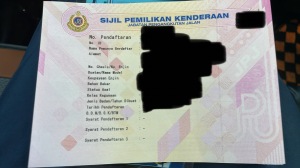
With a Malaysian-registered car, it means that we now gain access to RON95 at petrol stations near the Singapore. As of writing, this is 2.05RM/l compared to 3.47RM/l for RON97 because there is an explicit rule that disallows foreigners from benefiting from the heavily-subsidised petrol intended for locals.
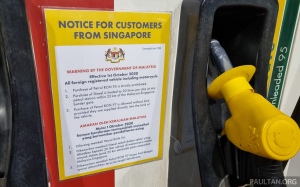
Additionally, it allows us to better blend ourselves in as a local and we just hope that we don’t give ourselves away when we start opening our mouths to speak.
So yes, that’s really the gist of our relocation costs to Johor. It remains to be seen whether we will be able to derive savings from our monthly expenses and cover back this transitionary period of extra costs!
Would you consider such a relocation too? Let me know if you are keen!
im considering a similar move, but I understand that the guardian visa is only for one parent and usually the mother according to a school. Are we able to get it for both parents?
LikeLike